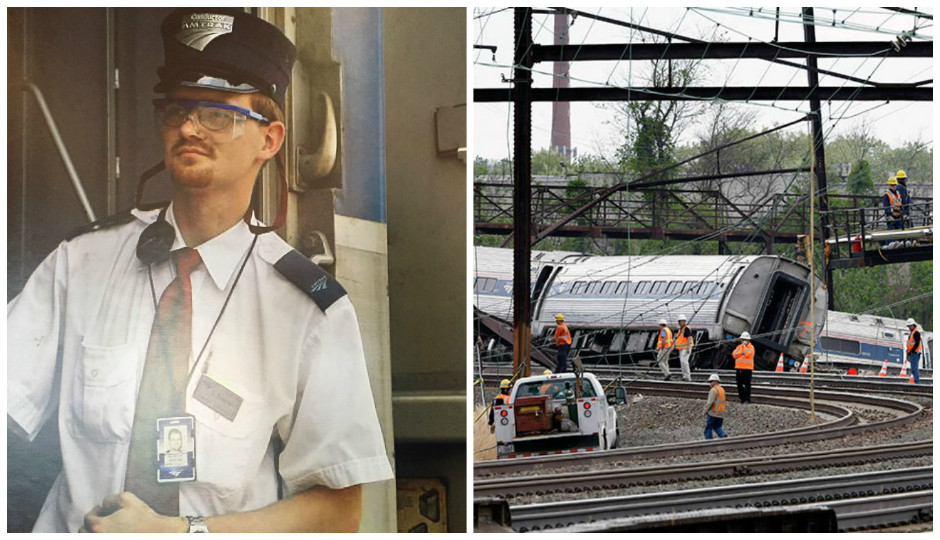DA’s Office Won’t Charge Driver in Amtrak Derailment

Left: Brandon Bostian (Courtesy of Robert Mongeluzzi); Right: The aftermath of the Amtrak Train 188 derailment (AP/Mel Evans)
The Philadelphia District Attorney’s Office will not charge Brandon Bostian, the engineer who was driving Amtrak Train 188 when it derailed in 2015, killing eight people and injuring more than 200 others.
Following a nearly two-year investigation, the DA’s office said no criminal charges would be filed in the Amtrak derailment.
While the organization found that “evidence indicates that the derailment was caused by the engineer operating the train far in excess of the speed limit … We have no evidence that the engineer acted with criminal ‘intent’ or criminal ‘knowledge’ within the special meaning of those terms under Pennsylvania law for purposes of criminal charges.”
This Friday (two years after the crash occurred) marked the deadline for the DA’s office to file criminal recklessness charges against Bostian, who had accelerated the train to 106 mph – more than twice the speed limit – just before it derailed and crashed near at a curve near Frankford Junction.
In its investigation, The DA’s office worked with police, Amtrak officials and members of the National Transportation Safety Board, whose own probe concluded a year ago that Bostian was likely distracted immediately before the derailment.
Bostian told investigators he doesn’t remember key moments from the event (he was diagnosed with a concussion after it occurred). According to blood tests, he did not have drugs or alcohol in his system at the time of the crash.
The DA’s office said it “reviewed the audio tapes of what the engineer said and heard before the derailment, and reviewed the engineer’s cell phone, cell phone records, and cell site data” and decided not charge Bostian for criminal recklessness for the following reasons, per a statement:
“Pennsylvania law specially states that one acts with criminal recklessness when a person ‘consciously disregards a substantial and unjustifiable risk.’ Based on the available information, we do not have evidence sufficient to prove beyond a reasonable doubt that the engineer ‘consciously’ disregarded the risk. We applied the law to the facts and reached this conclusion, which is specific to the criminal context. We of course offer no view on potential liability in other legal proceedings arising out of this incident.”
Last year, a federal judge ordered Amtrak to pay $265 million to settle claims arising from the derailment.
Follow @ClaireSasko on Twitter.


